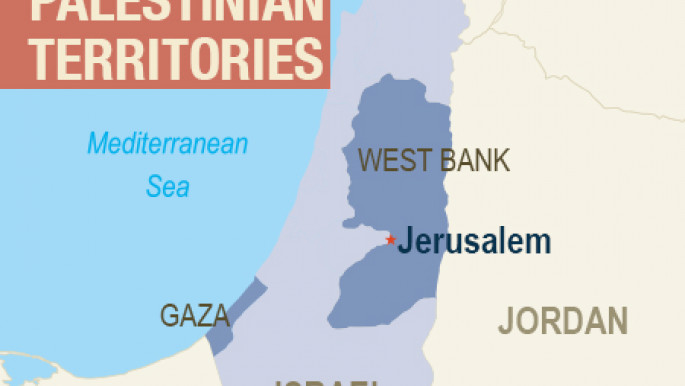Should Palestinian territories be put under UN protection?
A number of activists, trade union and political figures as well as intellectuals, are calling for international protection of occupied Palestinian territories.
The group have appealed to the Palestine Liberation Organisation [PLO] to call on the United Nations [UN] and permanent members of the Security Council to make the move.
| These negotiations have not been able to achieve the rights of the Palestinian people to return to the homes from which they were displaced |
"This call is coming after two decades of negotiations between the leadership of the PLO and successive Israeli occupation governments," the petition read.
"These negotiations have not been able to achieve the rights of the Palestinian people to return to the homes from which they were displaced and to self-determination."
This would involve deploying an "international protection" force to prevent violations of international humanitarian law, including Israeli exploitation of Palestinian natural resources including groundwater and illegal settlement expansion.
'Oslo is dead'
As a third intifada gains traction, the call is inspired by deep disillusionment with the status quo, which involves Palestinian Authority [PA] security coordination with Israel.
"A lot of people have called for dismantling the PA, they don’t answer what is next”, said Samer Jaber, one of the activists who called for the campaign. "Oslo is dead."
The proposal includes retiring the security forces of the Palestinian Authority.
"Its not a main strategy… it’s an alternative to the official Palestinian leadership… we’re telling them to change the route," said Jaber.
The UN, in effect, created the state of Israel in 1948, thereby starting the conflict.
So can Palestinians trust the UN with solving the problem?
Accordingly, many are sceptical of the plan.
One activist said, "the masses aren’t exactly calling for more occupiers."
Jaber welcomes such scepticism, saying "people should keep on raising these issues… Palestinians have every right no to trust international intervention."
"The UN would be the only entity with the legal capacity to enforce such a change in Palestine – Palestinians don’t have the power to do it."
Jaber feels that now might be an ideal time to force the United States to action, considering their interests in other countries in the region.
"Palestine has an impact on the region, they are looking for international peaceful solution," he said.
An international presence
 |
|
Hamas and the Palestinian leadership have called for the international presence on the Gaza borders to regulate them.
He gave the example of the deployment of UN peace keeping forces in Kosovo.
Ahmad Saadat, the general secretary of the Popular Front for the Liberation of Palestine, supported the idea by an article published a few months ago on Maan News.
A member of the Palestinian National Council, Mahmod Fanon and co-founder of group campaigning for boycott, divestment and sanctions, Ali Abunima have also endorced the call.
"Mahmoud Abbas took note of the proposal a few months ago," said Jaber.
Abbas made illusions to the UN taking control in his speech.
"The main problem is not Abu Mazen, it’s the bankers… five to seven families control the economy, and profit off the occupation," said Jaber.
He feels that the plan, by limiting Israel’s ongoing occupation, it will also target these families.
This plan has also been alluded to by controversial former Gaza security chief and Abbas rival, Mohammad Dahlan who wrote on his Facebook page that the case should be presented to the UN Security Council.
However, Jaber feels that this support from the various different actors is a benefit, not a drawback.
"The idea provides a framework for different groups of people – Hamas, Dahlan, the left, even the Americans and Russians would profit from this," he said.
The deployment of peacekeepers would not only limit the activities of the Israeli army, but that of the Palestinian resistance factions; a contentious point where many defend the right of Palestinians to armed resistance.
"The Palestinian resistance adhere to the Geneva treaties," said Jaber, who also feels that the factions would be unable to face Israel on its own.
The initial aim is to draw up a proposal within Palestine, before presenting it to the UN.
"Initially we want to put something on the table during the next two to three years," he said, adding that the results of American elections will also affect a potential peace plan, with President Obama being perceived to be marginally more sympathetic to Palestinians than his predecessors.
"We do not claim that this step will end the Israeli occupation," the petition read.
"However, it is an exit strategy from the current arrangement and burdens and towards the reconstruction of our national project on the basis of effective struggle," it said.
The group is also calling for the boycott of the peace "Quartet" delegation which is set to arrive on Wednesday, and was formally lead by former British Prime Minister, Tony Blair.
The UN, Russia, the US and the EU is represented in the Quartet which has attempted to faciliate negotiations between Palestine and Israel.
Their plans for Palestine focus on economic reforms, much of which benifit the large families of businessmen that Jaber views as central to the problems of Palestinian rescources.
"We are used to Mr Blair's support of the demands of the occupying power, Israel, so we invite to boycott the vote until the announcement of a clear plan is announced," said the communique, adding that negotiations should not take place "behind closed doors".





 Follow the Middle East's top stories in English at The New Arab on Google News
Follow the Middle East's top stories in English at The New Arab on Google News


